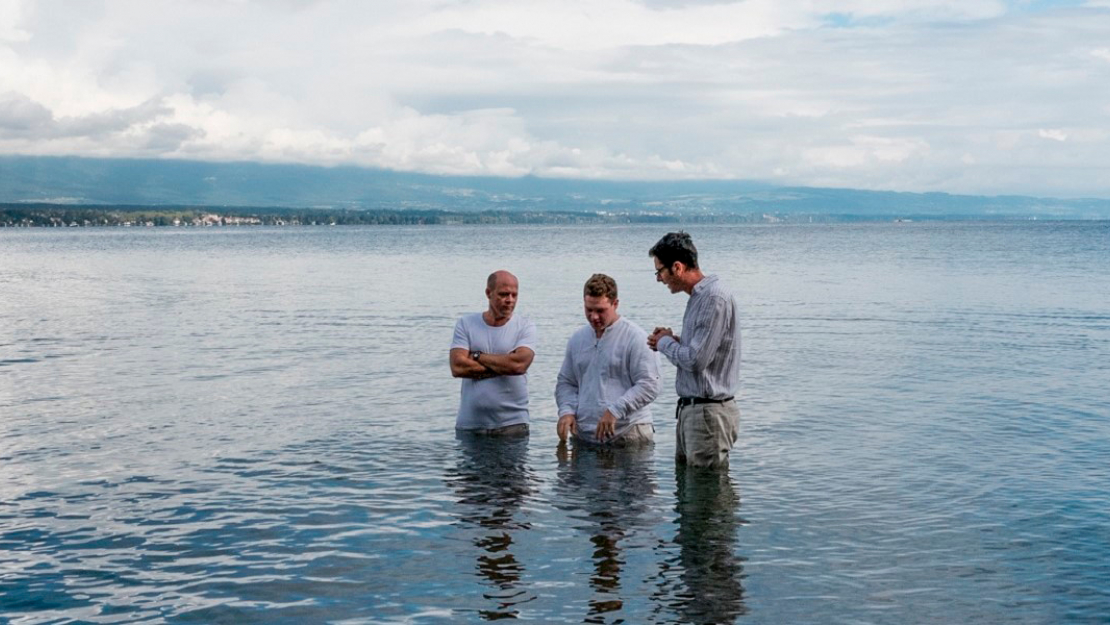Geneva Secularity Law: No Public Baptisms for Non-Registered Churches

The Swiss Federal Court has supported a decision of the canton of Geneva banning baptismal celebrations in Lake Geneva for churches which do not "maintain a relationship with the State". In its ruling published in February 2024, the Court rejected the appeal of two churches, which have been banned from performing baptisms in the lake despite their long tradition of doing so.
The Evangelical Free Church of Cologny has long practised adult baptisms by immersion, in simple and peaceful ceremonies at the Lake Geneva, which have never given rise to any complaints. Following the adoption of the Regulation implementing the Geneva Law on the Secularity of the State (Règlement d'application de la loi sur la laïcité de l'Etat - RLE), the department responsible refused the church the right to continue this practice. The reason given for this was that the church has no official relations with the state.
The ruling upheld the decision of the Administrative Chamber Department of Security, Population and Health (DSPS), which rejected the request by two Protestant churches to manifest religious practices in the public domain, on the grounds that they had not signed the declaration of commitment provided for in article 4 of the Regulation implementing the Geneva Law on the Secularity of the State.
The Swiss Evangelical Alliance (SEA) criticised the ruling, arguing that it makes the exercise of fundamental rights dependent on a political decision. The SEA furthermore criticised "that religious organisations are treated as suspicious from the outset: They are required to fulfil an obligation to the state in relation to religious events that is not required of other users of the public domain."
The church in question and the SEA also argued that the state can offer benefits to religious organisations that choose to have a relationship with it but must under no circumstances curtail the rights of those that do not. The complete independence of churches from the state should be the norm in this case.
The declaration of commitment, which churches are obliged to sign in order to enter into official relations with the State (the precondition for the use of public domain for religious manifestations), reads as follows:
Art. 4 (RLE) Declaration of commitment
The Declaration of Commitment sets out the requirements in terms of respect for fundamental rights and the Swiss legal system by religious organisations wishing to maintain a relationship with the State. These requirements are as follows:
a) to respect and support religious peace
b) to accept the diversity of philosophical, spiritual or religious approaches;
c) to exclude any act of physical or psychological violence, any act of spiritual abuse, as well as any statement inciting hatred;
d) reject any form of discrimination or denigration against a person or group of persons, particularly on the grounds of their beliefs, ethnic or national origins, sex, sexual orientation or identity, gender identity or expression;
e) collaborate in the prevention of radicalisation;
f) respect each individual's freedom of conscience, their right to adhere to the belief system of their choice, and their right to leave it;
g) respect freedom of opinion and information, within the limits of the law, including the right to satire and criticism;
h) recognise the primacy of the Swiss legal system over any religious obligations that may conflict with it, in particular with regard to family law.
In 2022, the Canton of Geneva even banned a religious procession of a church, which had signed the Art. 4 Declaration of commitment, arguing that the procession not only represented homage to a deity, but also aimed at displaying this homage to others, which the Canton believed to be a serious encroachment on the freedom and rights of others and to the cultic neutrality of the public space.
A Court of Appeal, however, found this ban to be incompatible with the exercise of religious freedom in its ruling from April 2023 (OIDAC reported).
Sources: each.ch, kath.ch, kath.ch
Image: each.ch
Legal texts: Règlement d'application de la loi sur la laïcité de l'Etat (RLE), Loi sur la laïcité de l'Etat (LLE)